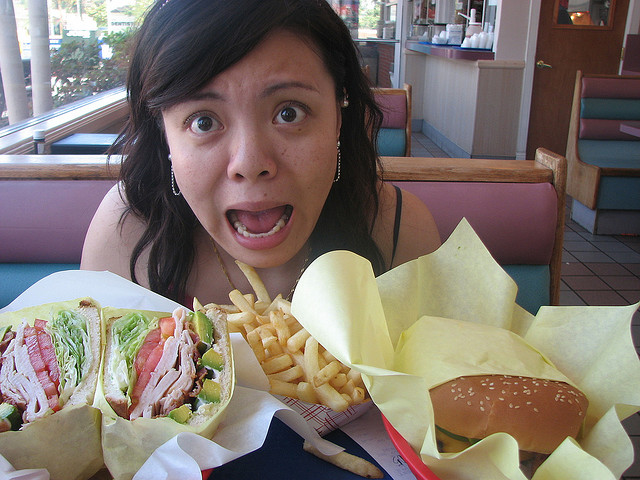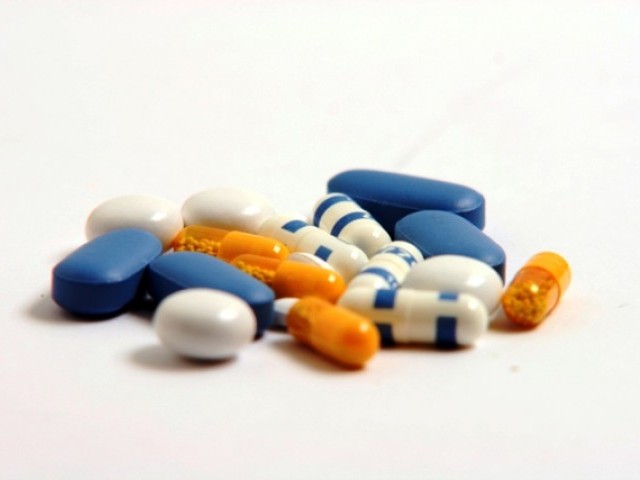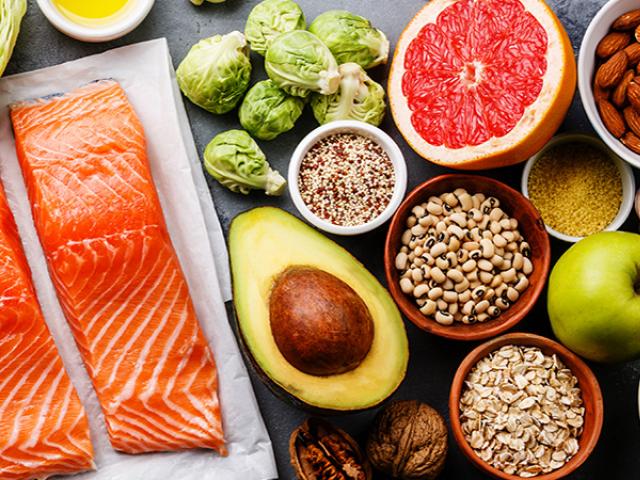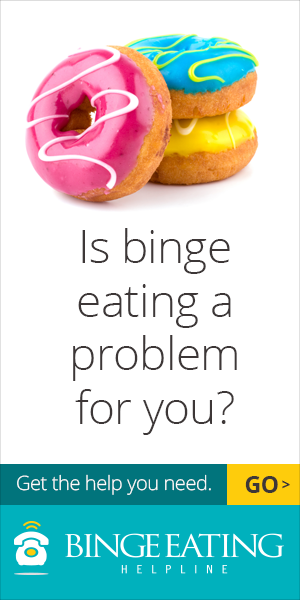Eating until nothing works anymore.
What Is The Binge Eating Disorder?
The Binge Eating disorder manifests itself in cravings, while those affected feel that they cannot stop eating and experience a loss of control over food intake. Large amounts of food are eaten quickly and mostly secretly during the eating attacks.
After the eating attacks and ravenous appetite attacks, those affected feel great feelings of shame, disgust for themselves and inner restlessness. The causes of these eating attacks can be emotional stress, for example. In contrast to bulimia, people who suffer from a binge eating disorder do not vomit or fast after eating attacks and do not exercise excessively to compensate for the calorie intake of the cravings.
In order to finally get a diagnosis of a binge eating disorder, sufferers must have a seizure twice a week for at least 6 months. In addition to the seizures, the diagnosis also includes the unpleasant emotions after the ravenous hunger attack and the loss of control during it. The weight is not a priority here, because even normal-weighty people can suffer from a binge eating disorder. However, binge eaters are more likely to suffer from obesity later.
Causes Of Binge Eating Disorder
Normally not one cause but several causes trigger a binge eating disorder and seizures. Factors such as genes, emotions and life experiences influence the development of the binge eating disorder. Basically, it is important to identify the causes of a binge eating disorder in order to actively tackle it.
Psychological causes
The experiences made during childhood play a major role in the psychological causes. Causes for later problems with one’s own eating behaviour can be traumatic experiences or the lack of other possibilities of emotion regulation. These different factors have an influence on the manifestation of the binge eating disorder. The learned faulty behaviour can begin harmlessly and become more pronounced in adulthood, e.g. in a harmful eating behaviour, low self-esteem or a negative self-image.
People often complain about difficulties with emotion regulation, impulse control or impulse control and a low self-esteem. Binge eaters often suffer from depressive symptoms (sleep disturbance, constant brooding, concentration difficulties, pessimistic view into the future, self-doubt, feeling of loneliness, dissatisfaction with oneself, etc.). Half of all binge eaters have an eating disorder and an underlying depression.
Social causes
Obesity often plays a role in childhood. Binge eaters usually develop problems with their own eating habits early on. Eating in childhood was then used as a false compensation, e.g. for calming, as a reward to alleviate anxiety or to free oneself from a depressive mood. In the short term, eating helps those affected to relieve unpleasant emotions such as sadness, fear, inner emptiness or insecurity. In the long run, a vicious circle sets in that is difficult to break.

Biological/genetic causes
Causes for a binge eating disorder sometimes lie in genetics. Rare anomalies can promote a binge eating disorder. Genetic/physical causes of a binge eating disorder include hypothalamus dysregulation, which controls appetite. A low level of the neurotransmitter serotonin in the brain has an effect on the development of a binge eating disorder and promotes eating attacks. Physical causes must be clarified with the family doctor. The general practitioner decides on the further therapy procedure.
Diet as cause
Sometimes a diet can be the cause for the development of a binge eating disorder. The diet usually involves depriving the body of food. If the body is denied food for a longer period of time, it sends out extreme hunger signals. It is all the more difficult to counteract these. The consequences are eating fits and cravings with excessive food intake. This unique eating attack can quickly become a long-term problem. A diet can cause great damage to the body over a long period of time, with eating fits and cravings becoming the rule.
Causes For Eating Attacks And Eating Attacks
For those affected, eating attacks, regular seizures, become the greatest burden. In general, it can be said that those affected want to “fill” something with excessive food. Affected people often report that it is difficult for them to distinguish the feeling of hunger from emotions such as sadness, fear or tension.
It is also difficult for people suffering from the binge eating disorder to distinguish between hunger and satiety. Binge eaters often feel a state of discomfort that they interpret as hunger. They then grab food for relief. A loss of control and not stopping can occur during a seizure or cravings attack.
Binge eaters feel briefly psychologically relieved during the eating attack. If the eating attacks end, feelings of regret, self-hatred, self-doubt and disgust quickly arise in those affected – they then feel worse than before the eating attack.
The eating attacks and cravings often lead to weight gain, which can happen very quickly. This weight gain and obesity intensifies the negative feelings – to compensate, the binge eaters take food again. This creates a vicious circle: the worse they feel, the more food Binge Eaters consume, after which they feel even worse.








